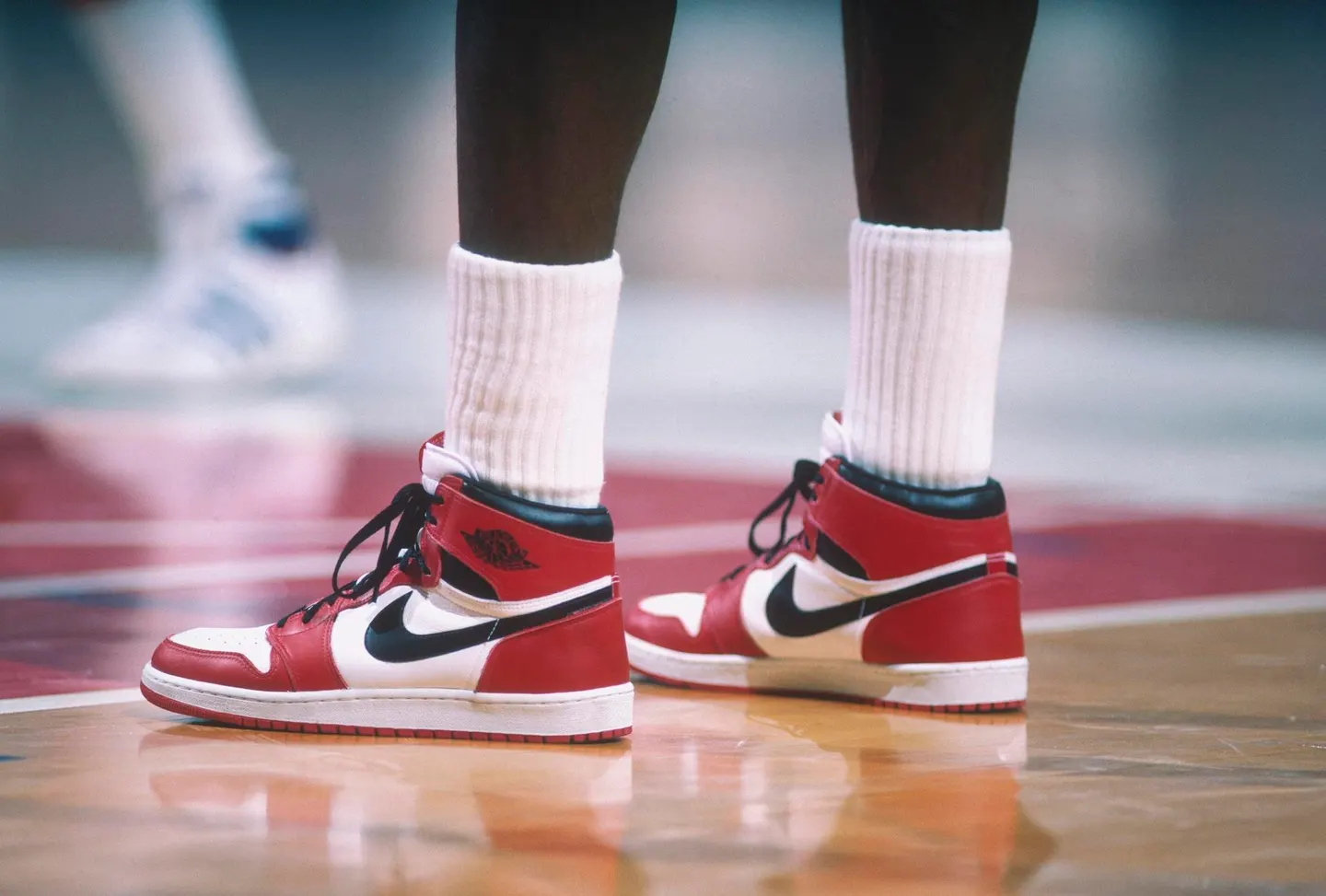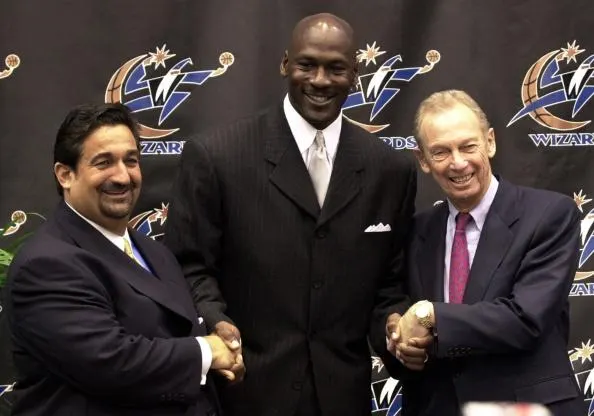Since his debut in the National Basketball Association (NBA) in 1984, Michael Jordan has become an outstanding player in both his playing and earning potential. His 15 seasons in the NBA have earned Jordan $94 million, and he has twice been the highest paid player in the league in 1997 and 1998.
But it’s off-court earnings that show the huge gap between Michael Jordan and other athletes in the world, as he “pocketed” $2.4 billion in pre-tax and agent fees income throughout his career from contracts with brands like McDonald’s, Gatorade, Hanes, and Nike, the sports brand that recently helped Jordan earn about $260 million in image royalties.
Michael Jordan made his biggest “shot” in August 2023, when he sold a controlling stake in the Charlotte Hornets basketball team in a deal worth $3 billion. Even using Forbes’ 2022 valuation of $1.7 billion to sell the team, it was still a successful business deal for the 60-year-old legend. The sale of the NBA’s 27th most valuable basketball team marked the second-largest acquisition in league history, a 17-fold increase from when Jordan became the owner of the Charlotte Hornets.
The deal raised Michael Jordan’s net worth to $3 billion, making him the first professional athlete to make the Forbes 400 list of the 400 richest Americans.
“Michael Jordan is one of those rare guys who’s been successful three times. A lot of guys are successful once, then they retire or they try something a second time and it doesn’t work,” Ted Leonsis, owner of the Washington Wizards and Washington Mystics, as well as the Washington Capitals, said of Jordan, with whom he has worked on sports investments. Leonsis cited Jordan’s influence as an athlete, owner and developer of the Air Jordan sneaker brand and Nike.
It is still rare for a professional athlete to become a billionaire in sports, with only three names having achieved this. Michael Jordan became the first in 2014, followed by LeBron James and Tiger Woods. LeBron James and Tiger Woods both made their billions while still playing.

The first pair of Air Jordans debuted in 1985. In 2022, the shoes were auctioned off by Sotheby’s for $560,000. Photo: Focus on Sport/Contributor/Getty Images.
As incomes continue to rise and opportunities for growth outside of competition emerge, the sports industry will see more athletes become billionaires in the future. Forbes estimates that there are currently seven athletes in the sports industry who have earned close to $1 billion before taxes and agency fees.
However, becoming a billionaire requires many different factors or as Mark Cuban, owner of the Dallas Mavericks basketball team, said, “athletes need a lot of luck.” But Michael Jordan’s path to becoming a billionaire was paved from the moment he started playing in the NBA.
When Air Jordan debuted in 1985, a year after Michael Jordan’s first NBA season, the shoe brand brought in $3 million in sales for Nike. Two months later, Air Jordan sales hit $70 million, and by the end of 1985, sales had risen to $100 million, according to a Temple University study in 2023. Michael Jordan initially signed a five-year deal with Nike, earning $500,000 a year in image rights. In Nike’s latest annual report, the sportswear company reported a 28.6% increase in annual sales to $6.6 billion from 2022.
But Nike wasn’t the only company that saw a business opportunity in leveraging the talent and charisma of Michael Jordan. “He was a brand before the concept of personal branding became popular. It wasn’t Michael Jordan endorsing Gatorade, it was the company that adopted the marketing concept of ‘Drink Gatorade and be like Michael,’” says Marc Ganis, president of consulting firm Sportscorp.
Shortly after his second retirement in 1998, Michael Jordan turned his attention from playing to investing and running professional basketball teams. According to ESPN, Jordan unsuccessfully attempted to buy two basketball teams, the New Orleans Pelicans (now renamed the New Orleans Pelicans) and the Milwaukee Bucks.
Jordan eventually joined a group of investors led by Ted Leonsis that bought the Washington Capitals football team, as well as a 44% stake in the Washington Wizards basketball team. Jordan served as executive chairman of the Washington Wizards. At the time, Abe Pollin held the largest stake in the Wizards.
“He was a quick learner and asked a lot of questions,” Ted Leonsis recalled of Michael Jordan. Leonsis said he shared with Jordan the business side of sports. “He had a more successful approach and believed that selling tickets and getting sponsorships was easier if you had a good roster with star players,” Leonsis said.

In 2000, Michael Jordan became a minority shareholder of the Washington Wizards basketball team and served as executive chairman. Photo: Doug Pensinger/Staff/Getty Images.
Michael Jordan later sold his stake in the sports teams he invested in after deciding to return to professional play for two seasons. In 2003, Jordan announced his final retirement and quickly bought another basketball team. In 2006, Jordan bought a minority stake in the Charlotte Hornets. In 2010, he became the first former player to own more than 50% of an NBA team.
Michael Jordan’s investment in the Charlotte Bobcats was largely in the form of debt, valuing the team at $175 million, a figure significantly lower than the $300 million investment that Robert L. Johnson, founder of Black Entertainment Television (BET), made in 2003 to own the Charlotte Hornets.
Michael Jordan was a fierce competitor, but the Charlotte Hornets have not fared well on the court, having been eliminated from the NBA Playoffs in the first round three times in the past 13 years. Despite the Hornets’ poor performance, Jordan has benefited from the team’s rising value.
In 2019, Jordan sold 20% of the Charlotte Hornets to Melvin Capital founder Gabe Plotkin and D1 Capital Partners founder Daniel Sundheim for $1.5 billion. The team’s valuation then doubled when Michael Jordan sold a controlling stake to Plotkin and Rick Schnall, another hedge fund founder.
“This deal led to the owners revaluing their teams. If the Charlotte Hornets had been sold at that price, my team (which had more revenue and size) would have been worth even more. He made a deal that benefited the owners of the other teams. The value of the teams could have gone down if Jordan had wanted to sell his stake in the Charlotte Hornets quickly at a low price,” Leonsis said.
Michael Jordan retains a minority stake in the Charlotte Hornets, which allows Jordan to maintain his connection to basketball and allows him to pursue new business opportunities. Over the years, Jordan has invested in other areas including car dealerships, restaurants, and most recently, equity investments. Through Ted Leonsis, Jordan has purchased stakes in CLEAR, Mythical Games, Dapper Labs, DraftKings, Sportradar, and others.
Ted Leonsis believes that Michael Jordan’s next challenge will be NASCAR. In 2020, Jordan and Joe Gibbs Racing driver Denny Hamlin co-founded a NASCAR team called 23XL Racing. “An investment in NASCAR could be Michael’s next big thing. It comes from his competitiveness and his desire to win,” Leonsis said.


 Nicki Minaj Takes on the Ultimate Freestyle Wheel Challenge Live!
Nicki Minaj Takes on the Ultimate Freestyle Wheel Challenge Live!


